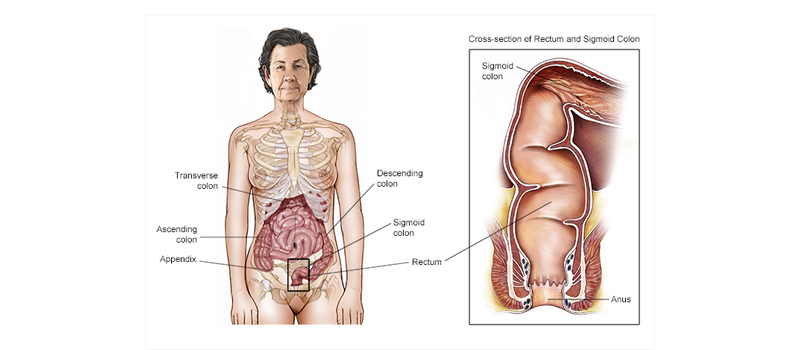
Colorectal cancer, also known as bowel cancer, is a malignancy that affects the colon or rectum, both of which are parts of the large intestine. It is one of the most common types of cancer worldwide and a leading cause of cancer-related deaths. However, with early detection and advancements in treatment, the prognosis for colorectal cancer has significantly improved in recent years.
Colorectal cancer typically develops from precancerous polyps, which are abnormal growths in the lining of the colon or rectum. Over time, some polyps may transform into cancerous tumors. While the exact cause of colorectal cancer is not fully understood, certain risk factors increase the likelihood of its development, including age, family history of colorectal cancer, personal history of inflammatory bowel disease, unhealthy lifestyle habits such as smoking and excessive alcohol consumption, and a diet high in red and processed meats.
In the early stages, colorectal cancer may not cause noticeable symptoms, which is why regular screening is crucial for early detection. As the disease progresses, symptoms may include changes in bowel habits, blood in the stool, abdominal discomfort or pain, unexplained weight loss, and fatigue. If colorectal cancer is suspected, diagnostic tests such as colonoscopy, sigmoidoscopy, fecal occult blood test, and imaging studies like CT scans may be performed to confirm the diagnosis and determine the extent of the disease.
The treatment for colorectal cancer depends on various factors, including the stage of the cancer, its location, and the patient's overall health. Treatment modalities may include surgery, chemotherapy, radiation therapy, targeted therapy, and immunotherapy.
Surgery: Surgery is often the primary treatment for localized colorectal cancer. The goal is to remove the cancerous tumor along with surrounding healthy tissue. In some cases, minimally invasive techniques such as laparoscopic or robotic-assisted surgery may be utilized, which offer quicker recovery times and reduced postoperative complications.
Chemotherapy and Radiation Therapy: These treatments may be used before surgery (neoadjuvant therapy) to shrink tumors, after surgery (adjuvant therapy) to kill any remaining cancer cells, or as palliative care to alleviate symptoms and improve quality of life in advanced cases. Chemotherapy uses drugs to destroy cancer cells, while radiation therapy employs high-energy beams to target and kill cancer cells.
Targeted Therapy and Immunotherapy: Targeted therapy drugs work by targeting specific molecules or pathways involved in the growth and spread of cancer cells. Immunotherapy harnesses the body's immune system to recognize and attack cancer cells. These therapies are often used when standard treatments have failed or in cases of advanced colorectal cancer
While not all cases of colorectal cancer can be prevented, certain lifestyle modifications can reduce the risk of developing the disease. These include maintaining a healthy weight, exercising regularly, consuming a balanced diet rich in fruits, vegetables, and whole grains, limiting red and processed meats, quitting smoking, moderating alcohol intake, and undergoing regular screening as recommended by healthcare professionals.
The prognosis for colorectal cancer varies depending on factors such as the stage of the cancer at diagnosis, the effectiveness of treatment, and the individual's response to therapy. Early detection and treatment significantly improve the chances of survival, underscoring the importance of routine screening for colorectal cancer.
In conclusion, colorectal cancer is a prevalent and potentially life-threatening disease, but advances in early detection and treatment have greatly improved outcomes for patients. By understanding the risk factors, recognizing symptoms, undergoing regular screening, and adopting a healthy lifestyle, individuals can reduce their risk of developing colorectal cancer and improve their overall health and well-being.